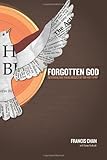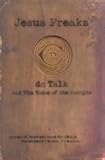After observing what a good citizen Mordecai was in Esth 2:21-23, it comes as a surprise to us to see him flatly refuse to comply with the king’s law in Esth 3:1-4. In some ways it is perplexing as to why he chose to disobey this particular rule. Commentators have pointed out that he would likely have had to pay homage to other officials as part of his job, so it may not simply be that Mordecai viewed bowing down to someone as idolatrous. Others have suggested Haman’s identity as an Agagite (and one who was decidedly anti-Jewish) as the reason behind his refusal.
Recently, Chuck Colson caused some controversy by suggesting that a time was coming when Christians in America might need to engage in civil disobedience. It raises the the question of what laws are worth fighting against, and what we can endure patiently as a form of persecution.
Do we take a “no compromise” approach and refuse to adhere to every single law that we feel violates a Biblical principle? Or do we save civil disobedience only for the most extreme violations of our Christian conscience?
The issue comes to a head whenever a law commands us to do what is evil (e.g,. Shadrach, Meshach and Abednego refusing to bow to the king’s statue – Dan 3:12) or forbids us to do what is right (e.g. Daniel flouting the law by continuing to pray to Yahweh – Dan 6:13). For the apostles, obedience to God always trumped obedience to the state:
Then they called them in again and commanded them not to speak or teach at all in the name of Jesus. But Peter and John replied, "Judge for yourselves whether it is right in God’s sight to obey you rather than God. For we cannot help speaking about what we have seen and heard." Acts 4:18-20 (NIV)
This is a matter that calls for great wisdom and courage, and Christians disagree over where exactly the lines should be drawn. Some will simply comply with unjust laws, and seek to find creative new ways of obeying God without breaking the law. Others will opt for the shrewdness of a passive-aggressive approach, failing to comply but without drawing unnecessary attention to themselves. And yet others will chose to take a public stand against the law and take whatever consequences that come their way.
It is not inconceivable that a time for civil disobedience may arise in our lifetimes in the UK. Thankfully, we still enjoy a good measure of religious freedom. But it is important that we settle our minds on the principle “we must obey God rather than men” in advance, if we are not to respond with compromise and cowardice at the crucial moment.
As usual, I welcome any feedback in the comments. At what point do you think civil disobedience becomes necessary?





